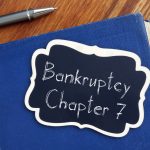Ready to take control of your finances? Let's make it happen! This year is shaping up to be a good one for consumers. All the pieces are coming together to deliver a tour de force in financial prosperity.
Whether it’s squirreling away additional funds for an emergency, an exotic getaway, or retirement purposes – people now realize that saving is necessary. It all begins with a plan – a sensible budget to improve one's financial situation in the future.
The world is full of advice, but not all of it is worth listening to. Experts are everywhere, and sensible advice is rare. Professionals routinely recommend spending less and saving more. Earning more and spending less would yield better results in double-quick time.
Regardless of the path, one must make a financial difference. It’s always best to live below your means, not above them. This sensible advice works every single time. Rather than waste what you don’t have, don’t spend everything you do have.
Learn to Save on Routine Expenses
Many folks feel hopelessly lost when it comes to regular, routine expenses, like gasoline at the pump, food purchases at the grocery store, or occasional meals eaten out at restaurants or takeout.
Sure, there’s always the extreme option of never eating out again and riding a bicycle, but the practicality of such measures is foolish at best. Rather than being extreme, it’s best to maintain maximum utility value while enjoying cashback rewards.
Put differently, it’s possible to leverage technology to derive maximum benefit from routine purchases. Things like a high-quality receipt app on your smartphone can prove beneficial. In such a scenario, scores of participating retailers partner with a leading receipt app, thereby affording tremendous benefits to participating customers. Registering with these reputable apps is quick and easy, and the benefits continue.
It's a win-win for businesses and consumers alike. From the business POV, increased visibility targeted marketing, and loyal customers make the discounts worthwhile. Equally important, customers don’t need to do anything differently to benefit from routine purchases. It’s the same utility value, only it's more affordable.
Use Credit Wisely
We live in a buy now pay later society. Most of us believe that we cannot escape this reality, and the longer we stay buried by credit card debt, personal loans, and pay-later schemes, the less likely we are ever to see financial freedom. The problem with debts is that they keep growing.
The more we finance with money we don’t have, the less we have ad infinitum. According to statistics, Americans are more indebted to their credit cards than at any other point in history. This is an ominous sign, but it can be turned around.
Super Tip: As a matter of priority, it is sacrosanct to pay down as much high-interest credit card debt, personal loans, car loans, and other buy-now-pay-later schemes as possible. Since expenses are recurring and debt is compounding, it is essential to pay down high-interest debt as quickly as possible.
Automatic Savings Systems
Anyone on a fixed salary, remittance, weekly wage, or other income-generating payout understands the basic mathematics of personal finance: money comes in, money goes out. It’s a revolving door policy, and often, the money going out exceeds the money coming in. That’s why so many people are indebted to credit card companies, banks, and credit bureaus.
An automatic savings system is a bulwark against financial ruination. Every month, everyone should automatically save a nominal amount or a small percentage of income for transfer into a savings plan. This can take many different forms, including tax-advantaged systems like IRAs, 401(k)s, HSAs, and others. Other options include high-yield savings accounts, CDs, or ETFs on the stock market.
Viewed in perspective, these automatic savings plans prove their worth over time. The stock market has consistently beaten inflationary pressures in the US economy. It’s well worth putting money away today for the future.
Work Towards Having Six Months’ Worth of Expenses Covered
Too many Americans cannot afford to write a check for a $1,000 emergency. This is unfortunate and an indictment of our buy-now-pay-later culture. With so many people living paycheck to paycheck, it’s more important than ever to have at least six months’ worth of expenses covered for an emergency.
Financial expert Dave Ramsey recommends funneling 15% of gross income into retirement savings. All of this demands budgeting—careful analysis of debits and credits—and the correct allotment of funds to different category items.
Invest Money, Don’t Spend Money
Everyone is always looking to satisfy an immediate want. Whether it’s an exotic vacation, a fancy sports car, a new décor, or a designer dog –it’s always best to think carefully about the opportunity cost of these expenditures.
The economy's inconsistency is the only consistency in life. Things are never going to remain the same—change is constant. When we throw away money on impulse purchases, we limit our ability to invest for the future.
Sometimes, those expenses we spend foolishly on end up costing us much more money down the line. Not convinced? How about buying a brand-new sports car and then hoping to cover the cost in terms of maintenance and repair, licensing and registration, insurance, and the like?
The same is true of buying pets—great companions but expensive to care for in terms of insurance, medical bills, food, boarding costs, grooming, etc. Granted, some expense items are well worth the sticker price, but it’s still food for thought. As Kevin O’Leary says - Stop wasting money on fancy coffees - you don’t need to give Starbucks your 401(k) contribution every month.
Now that you have a better idea of how to save money in 2025, you can confidently set up a blueprint for success. Remember to leverage technology, income, and tax advantages, and curb your enthusiasm regarding wanton purchases of unnecessary goods and services.














